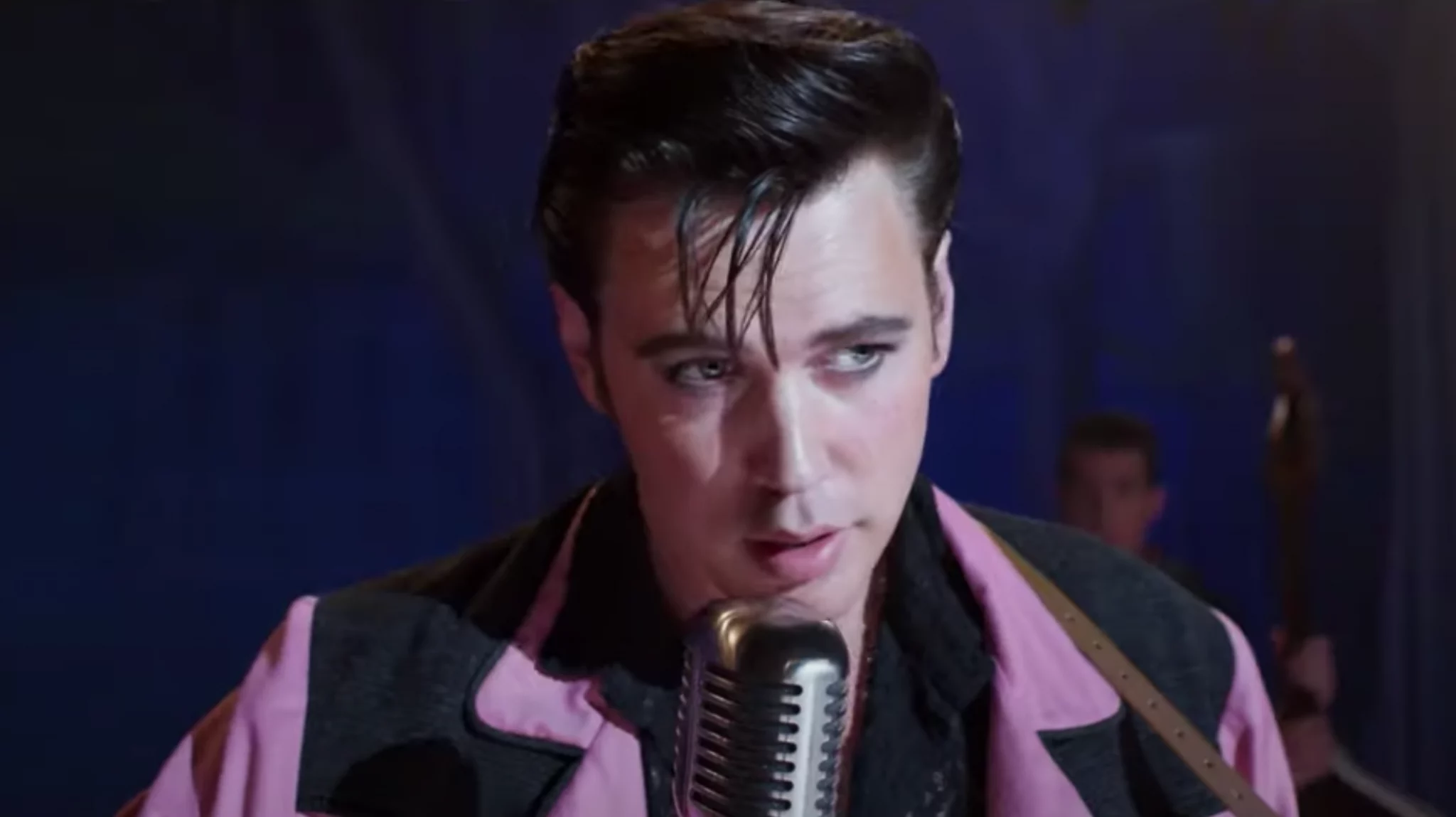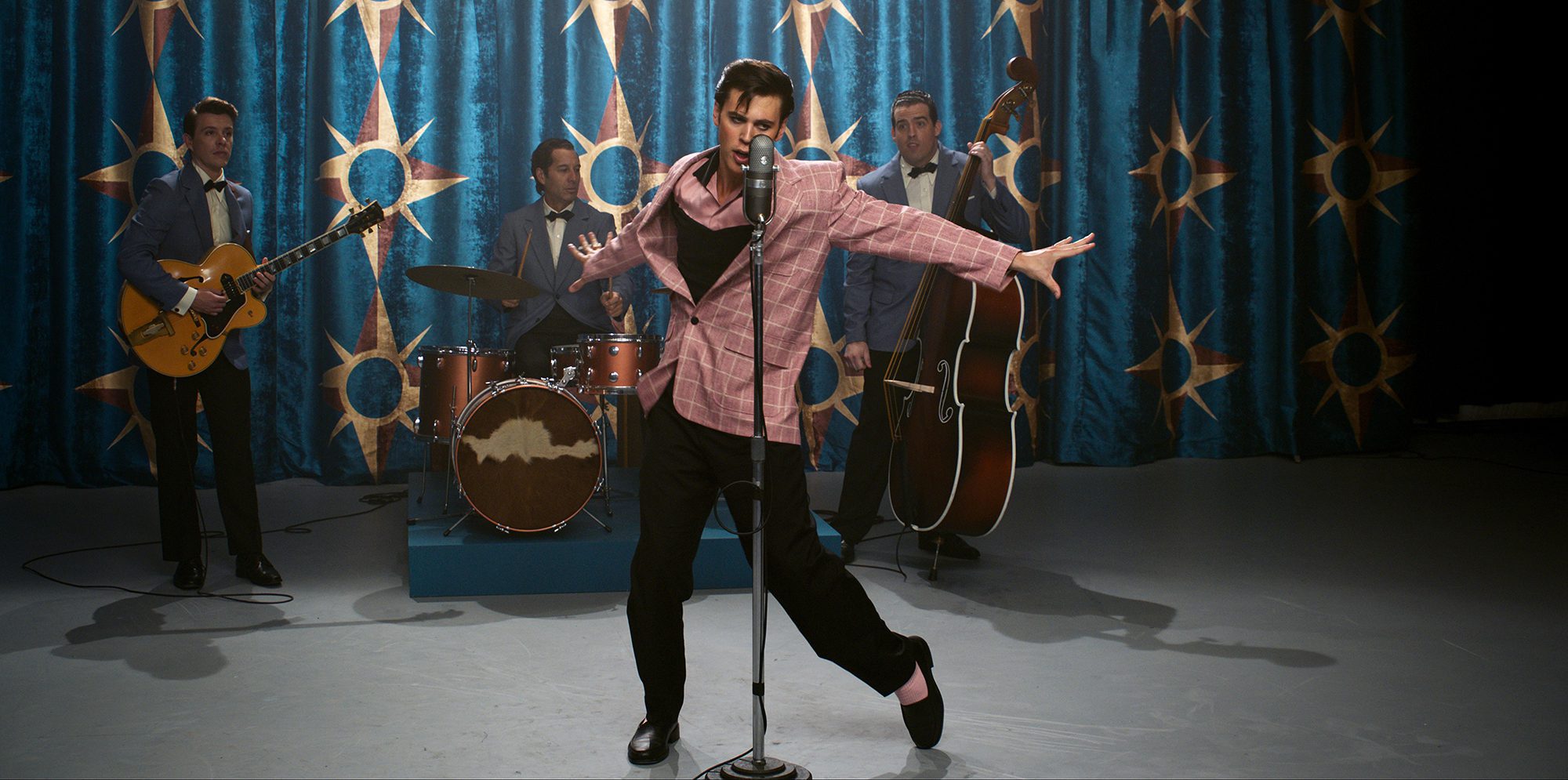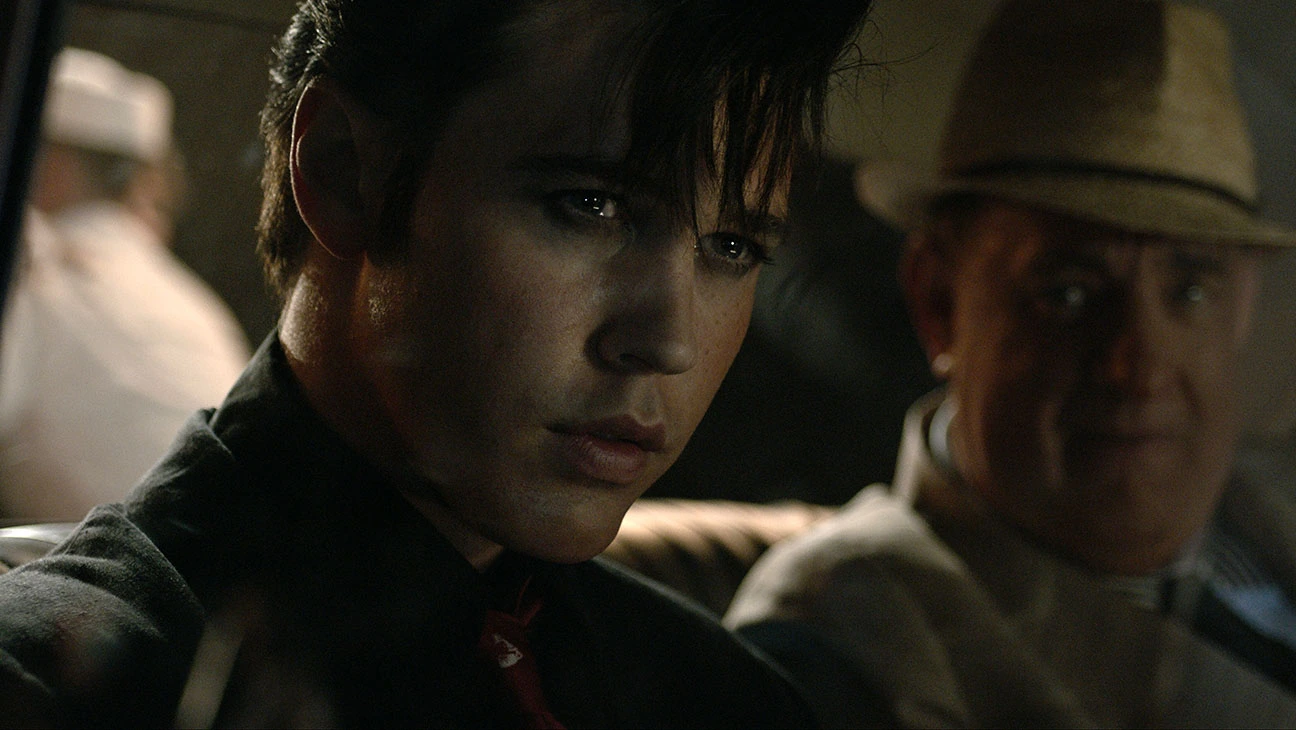
Elvis always could make a spectacle.
Directed by Baz Luhrmann,?Elvis?attempts to encapsulate the life of one man who lived larger than anyone who would come before (and, maybe, since) in the pop culture zeitgeist. Told from the perspective of his manager, Colonel Tom Parker (Tom Hanks),?the film?follows the rise and fall of the rock and roll icon. From his discovery as a young man, Elvis Presley (Austin Butler) always had a star quality about him. After dominating sales charts, Hollywood films and the Vegas strip, Elvis took over the world with his charm, unique voice and swinging hips. However, as secrets begin to be revealed, Presley?s relationship with Parker becomes toxic and arguably plays a role in his demise.

As with all of Luhrmann?s work,?Elvis?is an absolute treat for the senses. With films such as?Moulin Rouge?and?The Great Gatsby?in his repertoire, it should be no surprise that much of the film feels like a fantasy. Luhrmann has always had strong visual acuity and?Elvis?is no different. Stunning musical productions take centre stage as this film attempts to resurrect the life of a man who changed music forever. Soft pastels bathe the 1950s in a nostalgic glow yet luminescent colours also burst on the screen whenever possible. (In this way, the film is reminiscent to the recent Queen biopic?Bohemian Rhapsody, which places such an emphasis on visuals that one can?t help but be charmed by Luhrmann?s imaginings.) Fueled by enthusiastic and energetic performances, there?s little doubt that this is a film that wants to dazzle the viewer.
And that?s precisely the point.

The pageantry of Luhrmann works exceptionally well when one considers that much of the film is about ?snowing the audience?. Calling himself ?The Snowman? for his ability to convince people of what they want, Colonel Parker understood how to keep the audience watching. For example, in one of the earliest performances, Parker notes that young women will see Elvis? gyrations and ?have feelings, knowing that they shouldn?t have them? but that they wouldn?t be able to look away either. To him, Elvis is another circus act designed to draw people in and distract them with spectacle.
Though, with this in mind, the greatest challenge of the film was always going to be finding someone who could step into the Blue Suede shoes in the first place. As one of the most recognizable faces in pop culture history, Elvis Presley had a unique presence about him. However, (and I don?t say this lightly) it?s possible that Luhrmann may have found the perfect person to take on the role in Butler. Largely unknown before this, Butler absolutely sparkles on screen whenever given the opportunity. (In fact, his anonymity helps further the illusion.) Although much of his performance involves mimicking the famed popstar, there?s no doubt that he gives the audience something to see. Underneath the swinging hips and lip curl, Butler brings a strength and determination to his performance that makes it noteworthy.?

At the same time, Hanks plays Colonel Parker with a level of sleaze that we don?t often see from the actor. Known for his affability, Hanks can?t help but make his characters likeable. While that may seem counter-intuitive to the scheming Parker, Hanks also makes it his greatest weapon. A master of trickery, Hanks? Parker uses his charm to disguise the maniacal self-centeredness that bubble underneath. Serving as the foil to Butler?s Presley, Hanks? Snowman remains likeable yet always feels like he?s on the prowl, tantalizing his prey to bite the proverbial apple.
Clocking in at 2 hours and 40 minutes, the film is longer than one might expect but the decision is somewhat understandable. Luhrmann attempts to bring as much of Elvis?s life and soul onscreen as possible. Yet, as a result, this is very much two films at the same time. Beginning with his discovery and rise to fame, Luhrmann leans fully into his most decadent impulses. Nevertheless, after his famed comeback special, the film takes a darker turn. Showcasing Presley?s fall from grace, Elvis emphasizes the abuse and control that was exhibited upon him by Parker. In these moments, Luhrmann pulls back on his lush visuals, leaning into the heaviness of the shadows that gradually engulf him.

What?s most interesting about Elvis though is its commitment to showing Presley?s passion for social justice. Having grown up in an African-American community, Presley always maintained a deep passion and connection to their culture and music. Living through such world-shaking events as the death of Martin Luther King Jr. and Bobby Kennedy, Elvis shows a side of the singer that we are not accustomed to seeing: his desire to be a voice of hope in a time of struggle.
Even so, this inevitably leads to the question of cultural appropriation. Although he loved African-American music, Presley?s performances have become synonymous with co-opting another culture as his own. Looking back, we understand the deeply racist undertones of these musical actions. However, Elvis suggests that his actions stem from an interest in celebrating and elevating a culture that he admires (and, in fact, feels more comfortable within).

At the same time though, the film (wisely) never allows Elvis Presley to come across as ignorant of his actions. This is especially noted in one particularly poignant scene after he and BB King take in a performance of Little Richard’s ?Great Balls of Fire?. As Presley contemplates recording the tune for himself, King informs him that ?if he were to record that song on his own, he would make infinitely more money than Richard ever would.? With admissions like this, Luhrmann wisely attempts to acknowledge the deeply painful realities of racism of the era without losing the celebration of Presley as rock and roll hero. (Admittedly, while one wishes that this theme might have been explored a little more fully throughout the film, Luhrmann?s attempt to encapsulate the entirety of Presley?s life limits the opportunity to do so.)
While many may discount this film come Oscar time, it may be foolish to do so. Like?Bohemian Rhapsody before it, this sort of film is often attractive to voters and, with the right push, may find itself in the mix come January. There will be debates about the depth of the film and its quality, but there?s no doubt that?Elvis?is entertaining from start to finish. Like the King himself, this is a film designed to please audiences and it?s absolutely worth sitting back and enjoying the show.
Elvis is available in theatres on Friday, June 24th, 2022.




